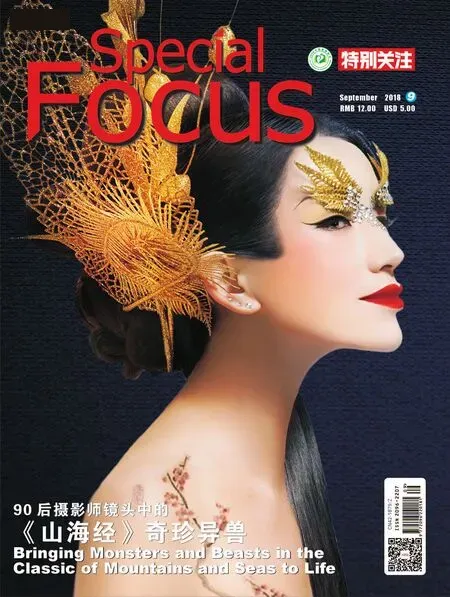Liezi’s Stories about Confucius
2018-04-02ByWangMeng
By Wang Meng
In the book Liezi, Zixia asked Confucius, “What do you think of Yan Hui?” Confucius replied, “He’s so benevolent that I cannot possibly compare to him.” “How about Zigong?” “He’s eloquent, how could I compare to him?” “How about Zilu?” “He’s brave, I could never be so.” “How about Zizhang?” “He’s seriousminded, I could never approach his level.”
Zixia then asked, “If you can’t compare to them in these aspects, why do they learn from you?” Confucius replied, “Yan Hui knows only benevolence,but not adaptability; Zigong is versed in debate, yet he knows only speaking, but not modesty or reticence; Zilu only knows‘bravery’ but not ‘timidity’;Zizhang is serious, but knows not when he should be affable or accommodating.”
Liezi had not fabricated all these stories. Confucius did say, “Moderation in all things.”Zhuangzi also advocated being“centered,” thereby maintaining perfect distance from the two extremes and thus remaining invincible. The Book of Changes stressed the harmony between Yin and Yang, which is the essence of what is called the Tao (a Chinese Doctrine). What Laozi talked about was that “Existence was born of nothingness; difficult and simple complement each other;long and short define each other;high and low depend upon one another; voice and sound are in perfect harmony; and before and after follow each other.”
China is ancient and vast, so her parlance is far from simple.On the one hand, according to the traditional Chinese culture,when the emperor decreed a minister to die, the latter had no option but to die; yet he could only thank the emperor before his death. On the other hand, there is also a saying that goes, “Afine bird selects its roost to perch on,just as a wise minister chooses the right master to serve under.”The culture requires the minister to be fully loyal to the emperor,whereas when the emperor is not benevolent, it, on the contrary,requires the minister to risk being sliced to pieces and dare unsaddle the emperor. The culture advocates that one should sacrifice his/her life for the sake of virtue or for a just cause; yet it also allows one to pay attention to his/her own moral uplift without thought of others in times of hardship and when illegitimate government prevails in the state,one could shut up and feign ignorance.
The above Chinese sayings are quite unique and thought provoking. It is a well-rounded mindset that is not about petty titfor-tats, but focuses on the bigger picture. This mindset doesn’t need to be any certain way, and it is wide-open for adaptation.
《列子》中,子夏问孔子:颜回怎么样?孔子说:颜回仁,我比不上他。子贡怎么样?子贡雄辩,我比不上他。子路怎么样?子路勇敢,我比不上他。子张怎么样?子张严肃庄重,我比不上他。
子夏就问:这些方面你都比不上他们,为什么他们跟你学呢?孔子说:颜回仁心强,不知变通;子贡善于辩论,只知说,不知谦让、不知该沉默时沉默;子路只知道“勇”而不知道“怯”;子张有严肃的一面,不知道该随和时要随和,要和别人保持适当的一致。
倒也不全是列子瞎编,孔子确实说过“过犹不及”,庄子也主张寻找与各种末端保持距离的“道枢”,立于不败之地。《周易》讲究的是阴阳调和,是一阴一阳谓之道;老子讲的则是:“有无相生,难易相成,长短相形,高下相倾,音声相和,前后相随。”
中国确实又古又大,所以中国的说法远远不那么单纯。一方面是君要臣死,臣不得不死,臣死前还要谢恩;一方面是良禽择木而栖,良臣择主而事。一方面是尽忠;一方面是舍得一身剐,敢把皇帝拉下马。一方面是杀身成仁,舍生取义;一方面是穷则独善其身,邦无道则愚。
这些很有中国味道的说法,都很有趣。这种思维模式是全面思维方式,是周而不比、统筹兼顾,是既要这样又要那样、可以这样也可以那样的模式,是一种有巨大调整空间的思维方式。
